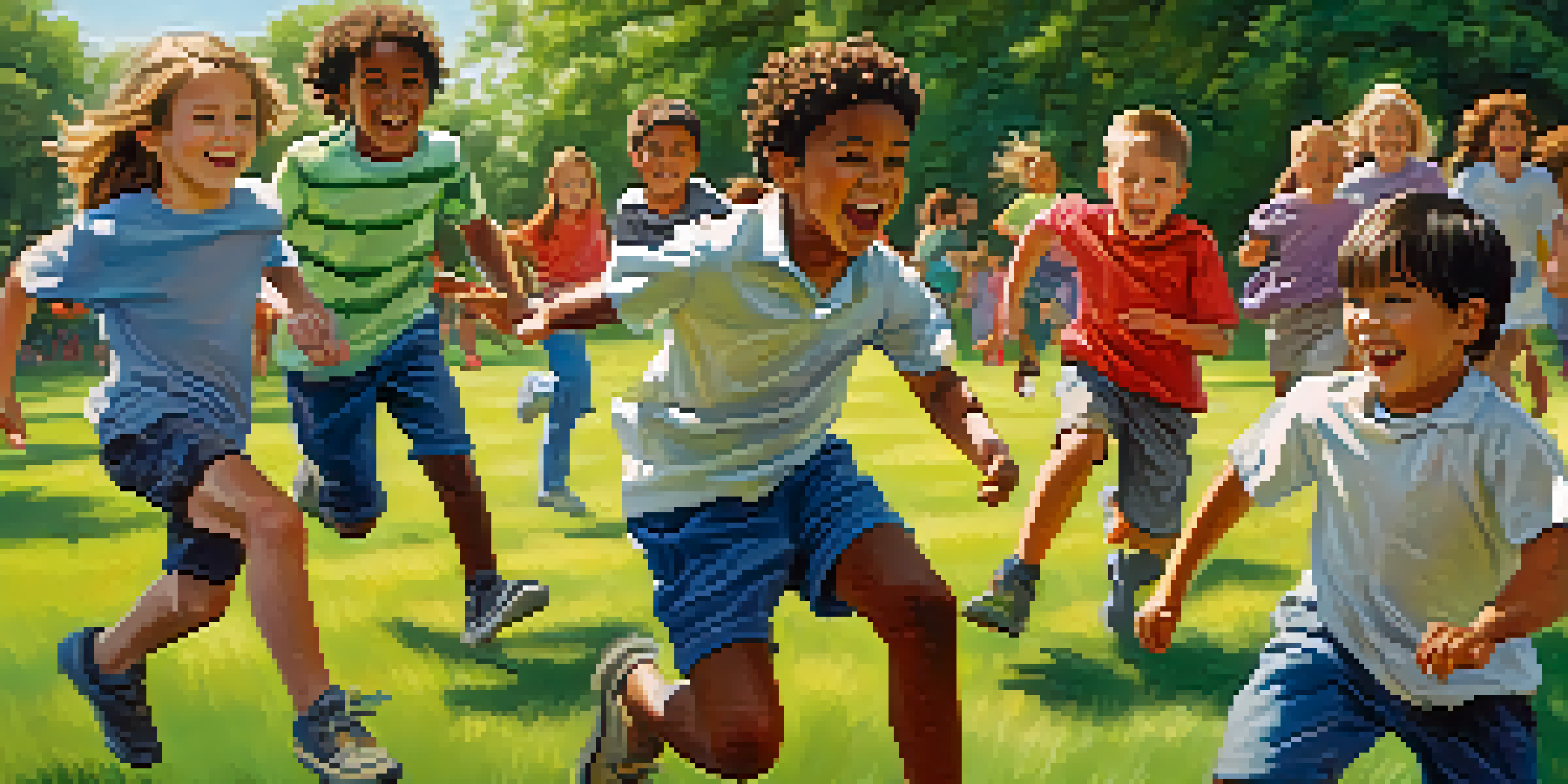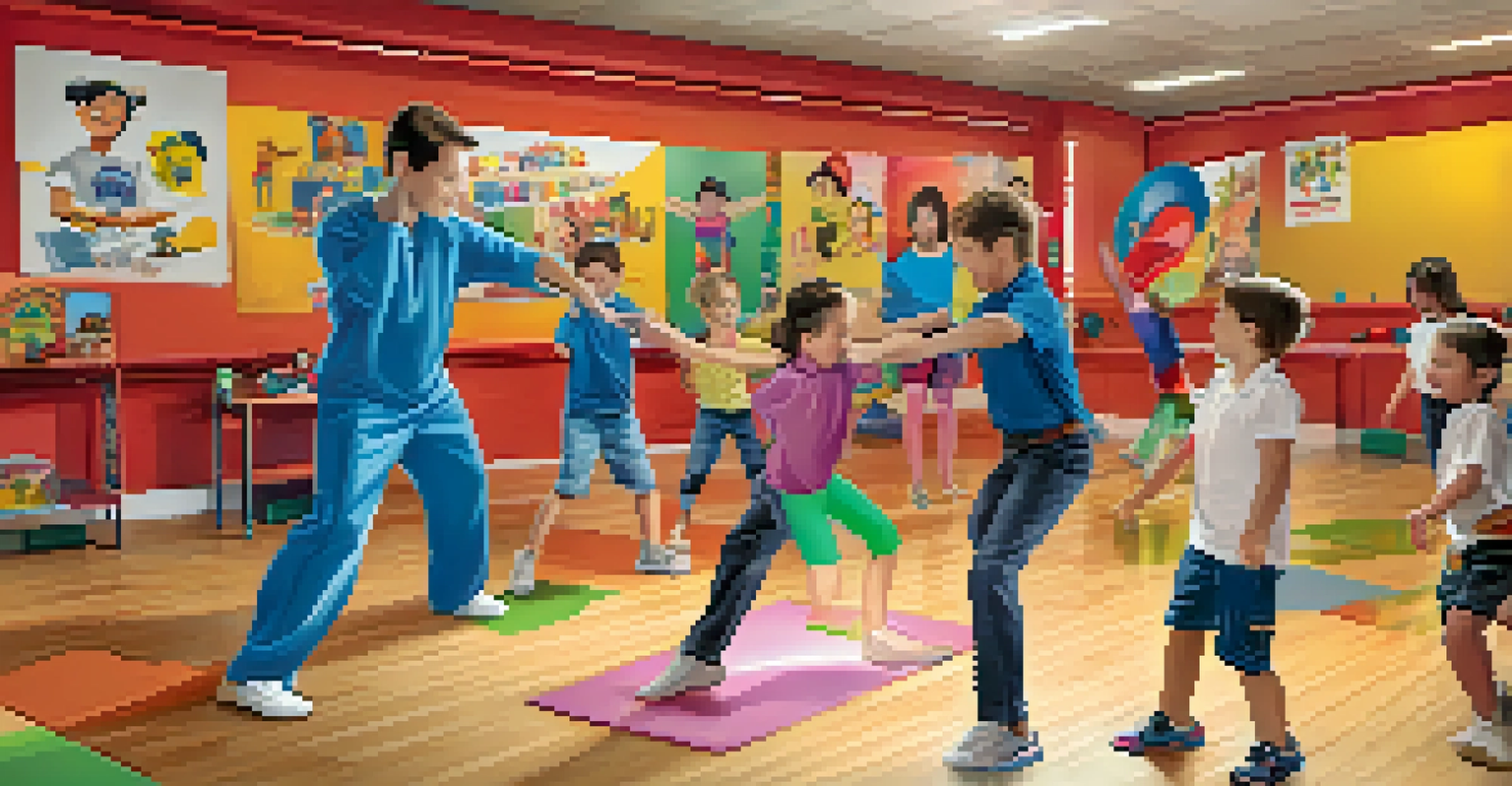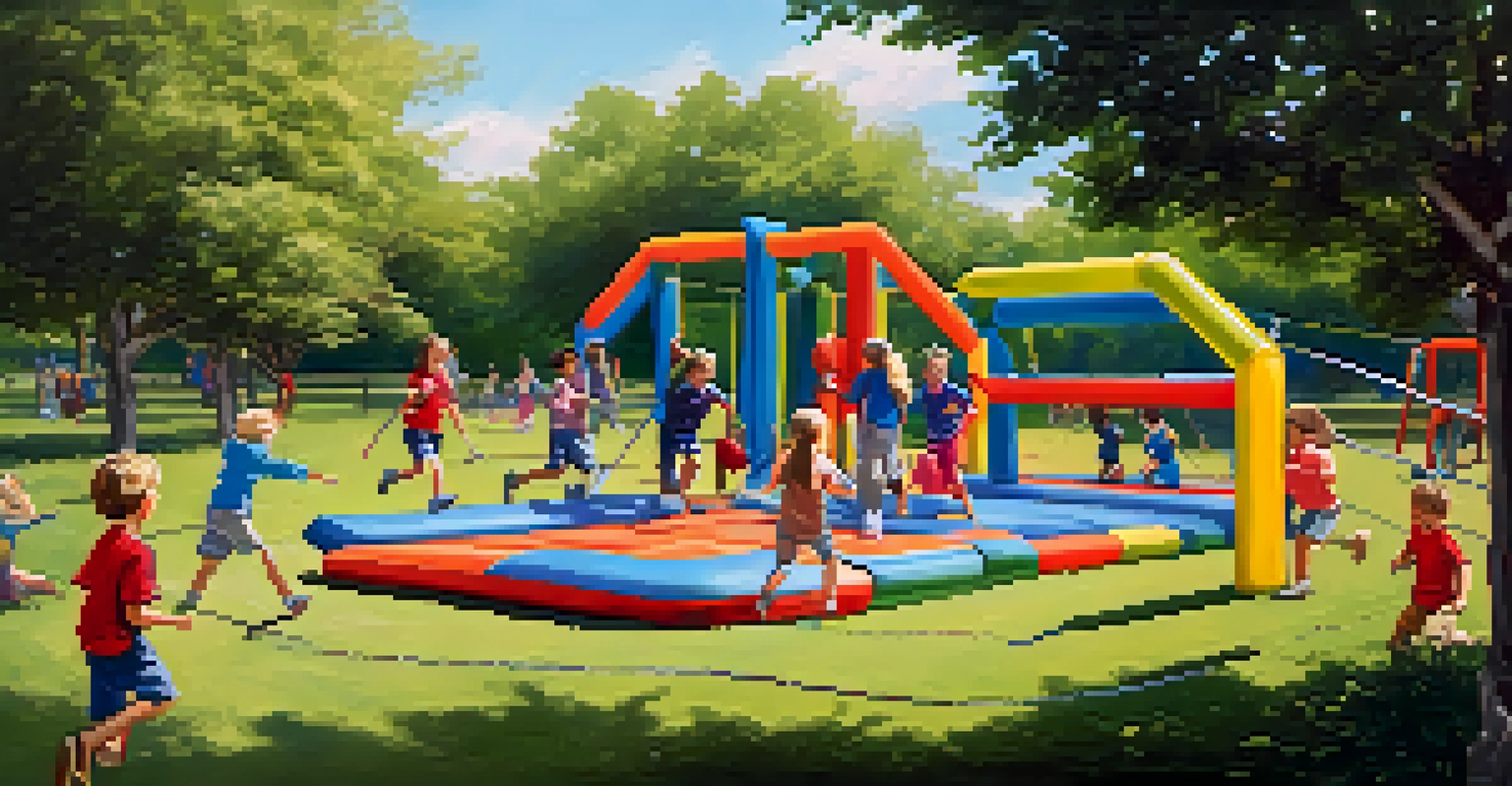Fun Self Defense Games That Teach Kids Valuable Skills

Why Self Defense is Important for Kids
Teaching kids self-defense goes beyond physical skills; it fosters confidence and resilience. In today's world, children can face various challenges, and having self-defense skills equips them to handle difficult situations. It's not just about fighting; it's about knowing how to avoid danger and react appropriately when the need arises.
Self-defense is not just a set of techniques; it’s a mindset that empowers you to navigate the world confidently.
Self-defense can also build essential life skills such as discipline, respect, and teamwork. As kids learn to work together in a group, they develop camaraderie and mutual support. These skills are invaluable, as they carry over into other areas of life, helping children navigate school and social interactions more effectively.
Related Resource
Moreover, engaging in self-defense activities can provide a healthy outlet for energy and stress. Physical activity is crucial for overall well-being, and self-defense games can channel that energy productively while teaching valuable lessons. Kids learn that staying active is not just fun; it's also a vital part of staying safe.
Fun Game: 'Capture the Flag with a Twist'
'Capture the Flag' is a classic game that can be adapted to teach self-defense techniques. In this version, players must retrieve the flag while avoiding being tagged by the opposing team, which can simulate real-life scenarios where kids may need to evade an attacker. This game emphasizes agility, strategy, and quick thinking under pressure.

As kids play, they learn to assess their surroundings and make split-second decisions, skills that are crucial in self-defense situations. Setting boundaries and discussing tactics can also spark conversations about safety and awareness, making the game both enjoyable and educational.
Confidence Through Self-Defense
Teaching kids self-defense fosters confidence and resilience, enabling them to navigate life's challenges effectively.
Adding elements of teamwork encourages kids to communicate and collaborate, reinforcing the idea that having a support system can be vital in real-life situations. Overall, this game blends fun and learning, offering a hands-on approach to understanding self-defense.
Game Idea: 'Self-Defense Simon Says'
A twist on the beloved children's game 'Simon Says' can effectively teach self-defense moves. In 'Self-Defense Simon Says,' the leader calls out various self-defense techniques, and players must only perform them if the leader precedes it with 'Simon Says.' This not only makes it fun but also reinforces listening skills and focus.
The best way to predict your future is to create it.
Kids can learn basic techniques such as stances, blocks, and escapes while having a great time. The element of surprise keeps players engaged, and they can even take turns leading the game, which encourages leadership and confidence in demonstrating skills.
Related Resource
Moreover, this game highlights the importance of following instructions correctly, a crucial aspect of self-defense training. By practicing their skills in a playful yet structured manner, kids develop muscle memory, making it easier to recall these techniques in real-life situations.
Interactive Game: 'Obstacle Course Challenge'
Creating an obstacle course that incorporates self-defense moves can be a fantastic way to teach kids while keeping them active. Set up stations where children must perform specific techniques to advance through the course, such as ducking, rolling, or practicing strikes. This engages their bodies and minds, allowing for a dynamic learning experience.
As they navigate the course, kids learn about spatial awareness and how to react to potential threats in a controlled environment. The physical challenge fosters a sense of achievement, as they can see their progress and improvement in real-time. Plus, it’s a great way to get them excited about exercising!
Learning Through Interactive Games
Engaging self-defense games like 'Capture the Flag with a Twist' teach essential skills while making learning fun.
Encouraging friendly competition can also motivate kids to push themselves and improve their skills. With teamwork and collaboration, they can cheer each other on, reinforcing the idea of community and support in self-defense scenarios.
Creative Approach: 'Self-Defense Role Play'
Role-playing different scenarios can help kids understand the dynamics of self-defense in a safe and controlled way. Through acting out various situations—like being approached by a stranger or dealing with bullies—children can practice their responses and learn how to assert themselves. This imaginative play allows them to explore their feelings and reactions.
By discussing different roles, kids can gain insights into both sides of a situation, promoting empathy and understanding. Role play encourages critical thinking, as children must come up with solutions and react to the actions of others, simulating real-life challenges they might face.
Related Resource
This form of learning is not only impactful but also memorable. Kids are likely to remember the lessons they learned through play much better than traditional methods, making it a powerful tool for self-defense education.
Teamwork Game: 'Self-Defense Relay Races'
Combining speed and skill, 'Self-Defense Relay Races' can be an exciting way to reinforce self-defense techniques. Teams compete against each other, passing a baton while completing various self-defense moves at each station. This not only keeps kids physically active but also fosters teamwork and camaraderie.
As they race, children learn to rely on one another, building trust and communication skills. Each station can focus on different techniques, so kids get a well-rounded experience. It's a fun way to infuse competition while encouraging them to give their best effort.
Building Essential Life Skills
Self-defense training instills discipline, teamwork, and critical thinking, which are valuable in various aspects of life.
The thrill of racing against another team can motivate kids to practice their techniques more diligently, reinforcing what they've learned. Plus, the excitement of a relay race makes the learning process enjoyable, ensuring that kids are engaged and eager to participate.
The Benefits of Learning Self Defense Early
Introducing self-defense games at a young age can have lasting benefits for children. They develop not only physical skills but also a strong sense of self-esteem and independence. This foundational confidence can positively impact various aspects of their lives, from academics to social interactions.
Learning these skills early also prepares kids for unforeseen circumstances. They gain awareness of their surroundings and the ability to think critically in challenging situations. This preparedness can make a significant difference in how they handle potential threats when they arise.

Incorporating self-defense into fun activities ensures that children associate these important skills with positive experiences. By creating a supportive and engaging environment, kids are more likely to embrace self-defense training and carry those lessons with them into adulthood.